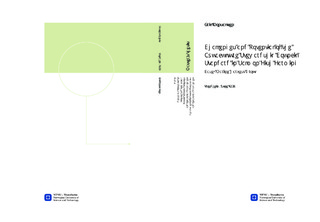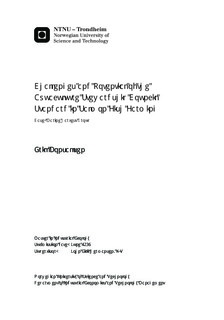| dc.description.abstract | Effective and sustainable management in aquaculture is crucial to meet challenges related to global food production, increased world population, and climate change. Principles and criteria embodied in standards have become means to counter such challenges. Standards has the potential to manage complexity in order to reduce costs and energy consumption, determine trade competitiveness, give access to new markets, provide traceability and accountability. A great proliferation of standards and certification schemes has emerged to address food safety and quality, environment, social responsibility and animal health and welfare - important issues within aquaculture. This is a trend also in salmon aquaculture and especially within Norway having salmon as the third biggest export product. Marine Harvest, the case company and world largest producer of Atlantic salmon have BAP and GLOBALG.A.P certified farms - two recognized schemes within the industry. Furthermore, Marine Harvest committed in 2013 to become 100 percent ASC certified within 2020. Upholding the scheme is the ASC Salmon Standard, held to be a frontrunner in term of environmental and social responsibility in salmon aquaculture and a key component for Marine Harvest to fulfill their sustainable ambitions. The aim of this research is to analyze and illustrate the content of ASC Salmon Standard, and uncover key features by comparing it to GLOBALG.A.P Aquaculture Module and BAP Salmon Farm Standards through quantitative and qualitative methodologies. Methods consist of analyzing with control points, external indicators, a GAP- and descriptive analysis. A multidisciplinary and thematic literature review concerning aquaculture standard builds the theoretical framework of the analysis, and analyze non-conformities in current implementation processes. Ultimately, all research will assess challenges and potential of an ASC Salmon Standard implementation and relate the results to the case company Marine Harvest and their sustainability ambitions.ASC Salmon Standard performs well in comparison to GLOBALG.A.P Aquaculture Module and BAP Salmon Farm Standard in environmental and social matters, but do not specifically address animal health and welfare and food safety. The standard of GLOBALG.A.P and BAP contain to larger extent minimum requirements, and depend more on local regulation. The ASC certification program is a viable scheme to address future challenges in term of environmental and social issues and to guide the salmon aquaculture industry towards sustainable development. | nb_NO |

